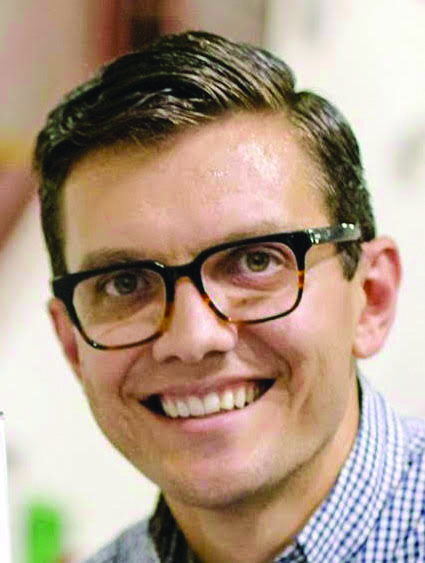Renowned 20th-century theologian, Karl Barth, said that one should, “preach with the Bible in one hand and the newspaper in the other.” That is to say, what pastors and priests preach ought to be faithful to scripture and applied to our current context. There is perhaps no greater exemplar of that admonition than the Rev. Dr. Martin Luther King, Jr.
In 1955, Dr. King received his Ph.D. in theology from Boston University. King’s public life of ministry and activism was marked by the crossroads of his faith and his public organizing to demand civil rights. While his leadership of the 1963 march on Washington is his most famous moment in popular memory, perhaps more critical to our historical moment is the 1965 march from Selma, Alabama across the Edmond Pettus Bridge, to the state capitol in Montgomery. The 54-mile march demanded full voting rights for African Americans. At the capitol, King delivered his address know as, “How Long, Not Long.” The address is also known as, “Our God Is Marching On.” The two titles offer a fitting juxtaposition of King’s blending of civic speeches and sermons. It was on this day that King posed the rhetorical question, how long until equal rights are secured for African Americans? He answered, “How long? Not long, because the arc of the moral universe is long, but it bends toward justice.”
Observation tells me that Dr. King was right that the arc of the moral universe is long—too long and slow for my comfort. Faith and hope tell me that King was right that it bends toward justice. We find ourselves in an ugly moment in American history, nearly 57 years after Dr. King’s address, when lies about stolen elections and disinformation about voter fraud have led many state lawmakers around the country to restrict voting access in a way that will primarily affect the poor and people of color—people groups with a long American story of disenfranchisement.
In the tradition of Dr. King, as well as the tradition of Jesus and leaders of various faith traditions around the world, it is time for people of faith to join the continuing fight for civil rights and equity in our nation. With scripture in one hand and a professional journalism news source on our phone, we must make our voice heard; citizens have a civil right to the vote—without regard to race, sex, class, or prior incarceration. All the more so in an election year as congress considers S.2741, Freedom to Vote Act; our voice for justice and equity must be heard.
While democratic elections were not a part of the world of Jesus he consistently spoke truth to power, especially if that power oppressed those who found themselves on the underside of society. Whether it was religious teachers excessively burdening people or government officials like Pilot and Herod the Tetrarch getting rich on the back of the poor, Jesus entered into the public discourse calling for a just and equitable society in which the poor will be blessed, the hungry fed, and the weeping laugh. And might I add, the citizen enfranchised?
Let us rise up, speak up, and do likewise.
Rev. Robby Olson is a Presbyterian pastor in Watsonville. His views are his own and not necessarily those of the Pajaronian.








